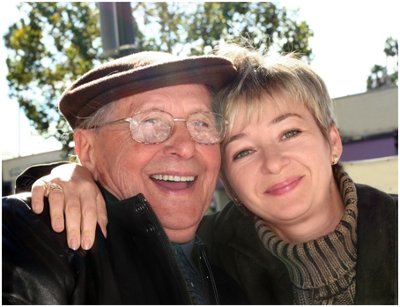Scared of Your Emotions?
When you see a mother with her baby, are you jealous? Or are you relieved it’s not you? Or maybe angry that she could have one, but you can’t? What about your feelings about your partner, or lack of? How do you feel walking in to work? When your kid flunks a test? When your computer crashes?
Are you afraid of what you feel? Scared that the emotion will cover you over like a tsunami and drag you out to sea? Take over your life?
If you’re trying to heal yourself, you will have to learn to release the toxic emotions you buried because you were afraid to feel them. You won’t want to dwell on the feelings as they come up or beat yourself up about them or try to change them. You’ll want to observe the emotions as if they are passing clouds—you feel the emotion arising, acknowledge it, and then watch as the storm clouds blow away.
Of course, it takes some time to be able to get comfortable with your emotions and not get caught up in them. I remember being in a courtroom as a young attorney during the time I was learning to name and acknowledge my emotions. I would write down what I was feeling in the margins of my brief, which was usually jealous, jealous, jealous. That’s how I felt about all those other lawyers who seemed so self-assured. It took a long time for me to feel comfortable with my jealousy and to stop trying to make it disappear. But when I did, I was able to uncover the fear that had created the jealousy, so I could then deal with it.
If I were to ask you, What are you feeling right now? would you be able to answer?
Here are words for some of the emotions, to get you started.
- Fear is always the basis of the other emotions. It ranges from anxiety and nervousness (including worry, distress, dread, dismay) to fright, horror, or shock that can lead into panic, terror, or hysteria. Or maybe you’re just shaking in your shoes or have butterflies in your stomach!
- Jealousy includes envy, wanting what other people have, or you can be filled with resentment, bitterness, or spite.
- Anger goes from irritation to rage. You can be annoyed, mad, furious, disgusted, or spiteful. Do you see red? Maybe your anger is nothing more than displeasure or pique rather than being infuriated.
- Sadness moves from feelings of self-pity to suffering hurt or anguish or grief. We can be wounded, upset, devastated, or simply unhappy, miserable, or gloomy. Maybe you’ve just got the blues.
- Shame can come from disgrace or dishonor, humiliation, embarrassment, or indignity. It is closely related to guilt—remorse or plain old regret.
- On the other hand, you can be filled with love and affection, be cheerful, proud, full of optimism and joy. Are you content and happy? Hopeful? Maybe blissful, in good spirits, without a care in the world.
As you can see, there are a lot of choices when it comes to naming your emotions. Let your choice be guided by your “gut feelings.” When you feel a sense of connection with a particular word, write it down in your journal and try to elaborate on what is causing it.
Now can you answer the question: What do I feel right now?
Just pick a word. It would be nice once in a while to have words like peaceful, happy, and cheerful. But whatever the word is, be really honest about it. Don’t try to change it and don’t criticize yourself; instead, congratulate yourself for the awareness. Absolutely everything starts with awareness.






